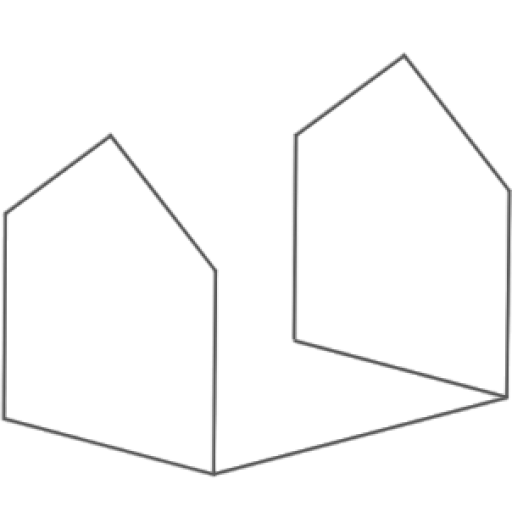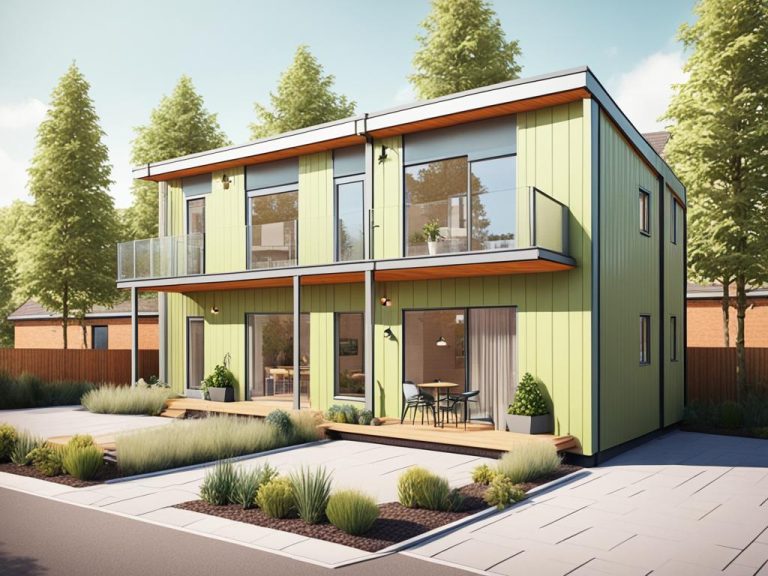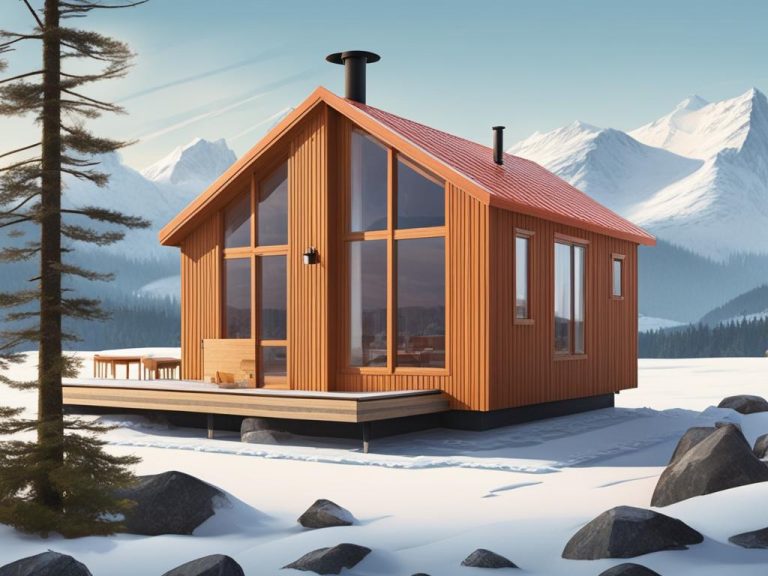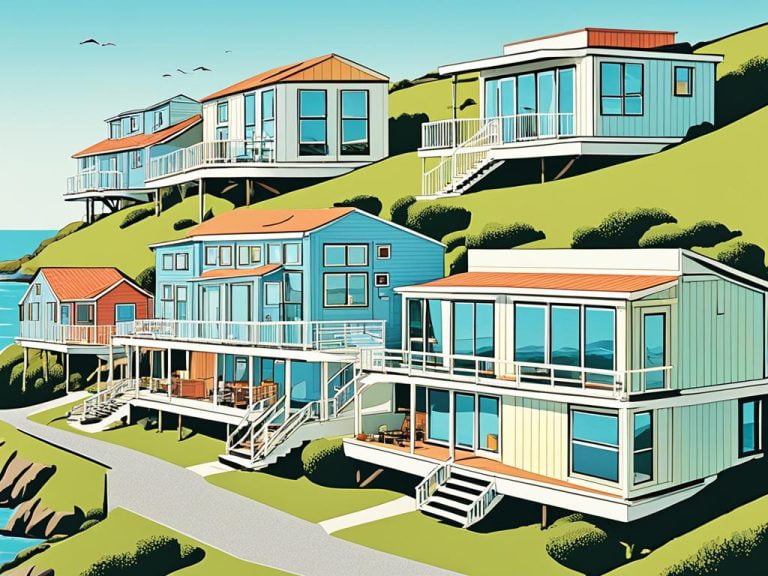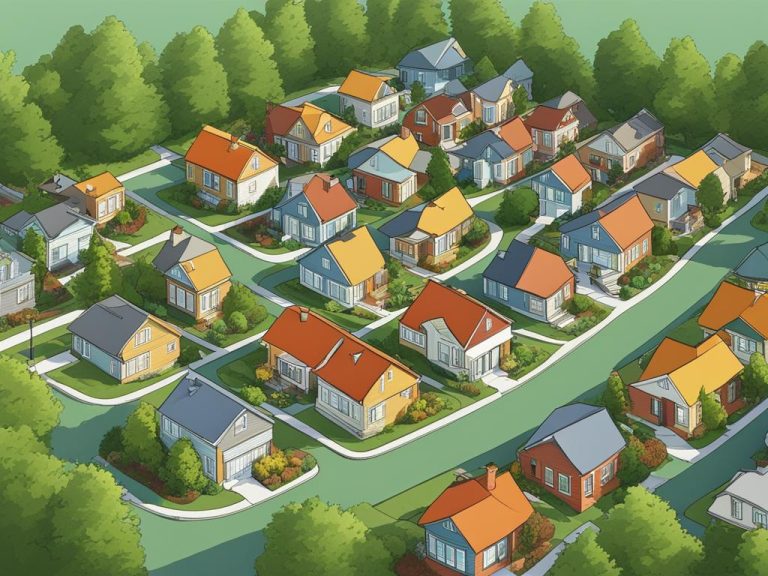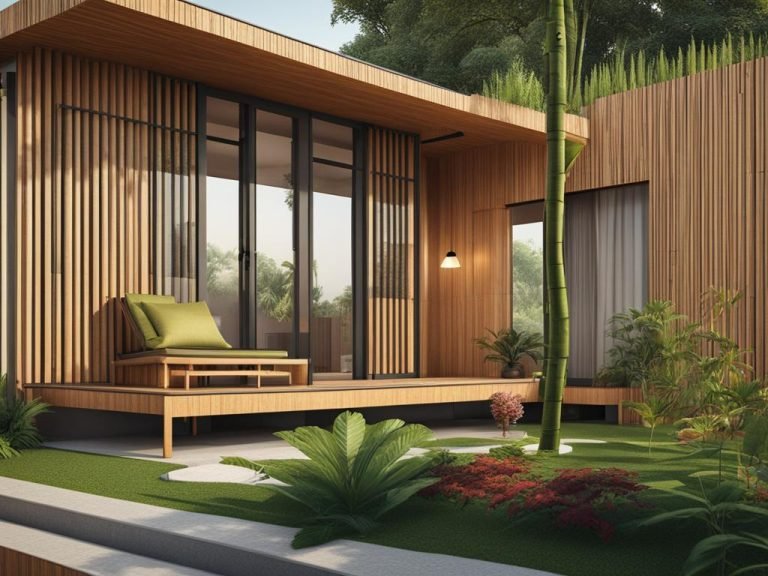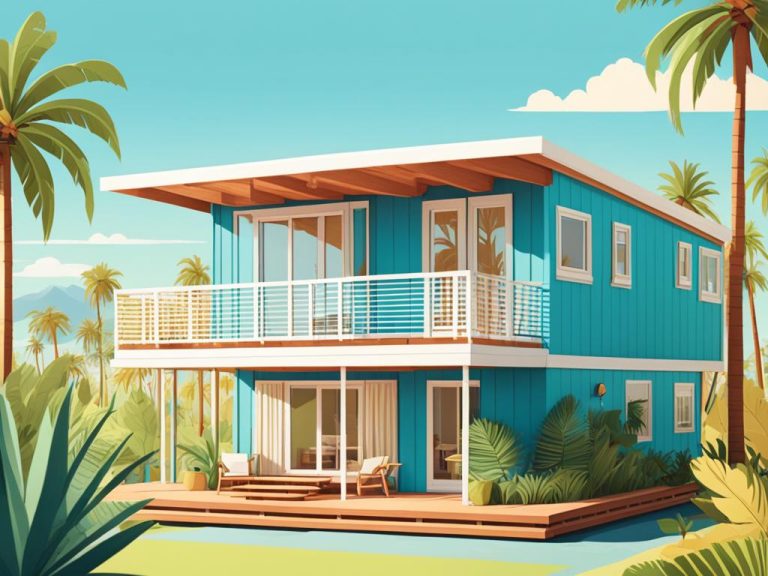Knaresborough Prefab Houses
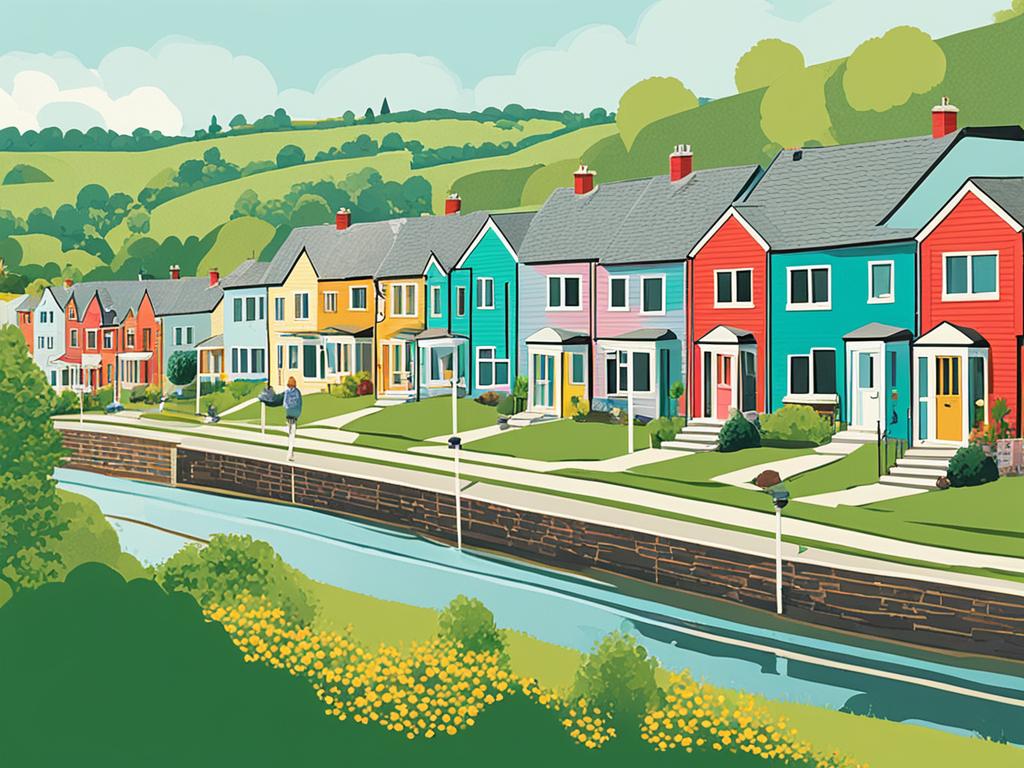
Knaresborough, a picturesque town in North Yorkshire, is home to a leading company in the prefab housing industry. Ilke Homes, based in Knaresborough, specializes in producing modular homes that are revolutionizing the way we think about housing. With a commitment to sustainability and innovation, Ilke Homes offers a range of prefabricated houses that are not only eco-friendly but also customizable and affordable.
Ilke Homes’ prefab houses in Knaresborough are built using cutting-edge technology and sustainable materials. These modular homes are designed to be energy-efficient, reducing carbon emissions and minimizing their impact on the environment. Whether you’re looking for a cozy self-build house or a spacious family home, Ilke Homes has a solution for you.
Key Takeaways:
- Ilke Homes, based in Knaresborough, produces innovative and sustainable prefab houses.
- These modular homes are energy-efficient and customizable to meet different housing needs.
- Ilke Homes offers a range of self-build houses and family homes in Knaresborough.
- The company’s commitment to sustainability ensures that their prefab houses are eco-friendly.
- Ilke Homes’ prefab houses provide an affordable and high-quality housing solution.
Ilke Homes’ Innovative Modular Homes
Ilke Homes, based in Knaresborough, is renowned for its production of high-quality, sustainable modular homes. These energy-efficient homes are manufactured at the company’s state-of-the-art factory, utilizing modern methods of construction. With a focus on eco-friendly design and functionality, Ilke Homes offers a range of affordable housing options that promote a greener future.
One of the standout features of Ilke Homes’ modular homes is their zero-carbon operation. These homes are built to minimize energy consumption and reduce carbon emissions, making them an ideal choice for environmentally conscious buyers. Additionally, Ilke Homes has introduced an innovative concept – the UK’s first homes that guarantee no energy bills. By incorporating advanced technologies and energy-efficient systems, homeowners can enjoy substantial savings while minimizing their ecological footprint.
Ilke Homes also provides turnkey development schemes, adding value to the local community by acquiring land, securing planning consent, and overseeing the development process. These schemes ensure that the construction of sustainable houses is integrated seamlessly into the fabric of Knaresborough, promoting the availability of more eco-friendly homes for residents.
Innovative Design Features
- Spacious interiors with ample natural light, creating a welcoming and comfortable living environment.
- Modern kitchens equipped with energy-efficient appliances, promoting sustainable cooking and reducing utility costs.
- Durable fixtures and finishes that prioritize longevity and reduced maintenance requirements.
Ilke Homes aims to set a new standard for energy-efficient and sustainable housing, providing individuals and families in Knaresborough with access to affordable, eco-friendly homes. By combining cutting-edge technology with a commitment to environmental responsibility, Ilke Homes is at the forefront of the modular homes industry, pioneering a brighter and greener future for the community.
See below for an image of one of Ilke Homes’ energy-efficient houses:
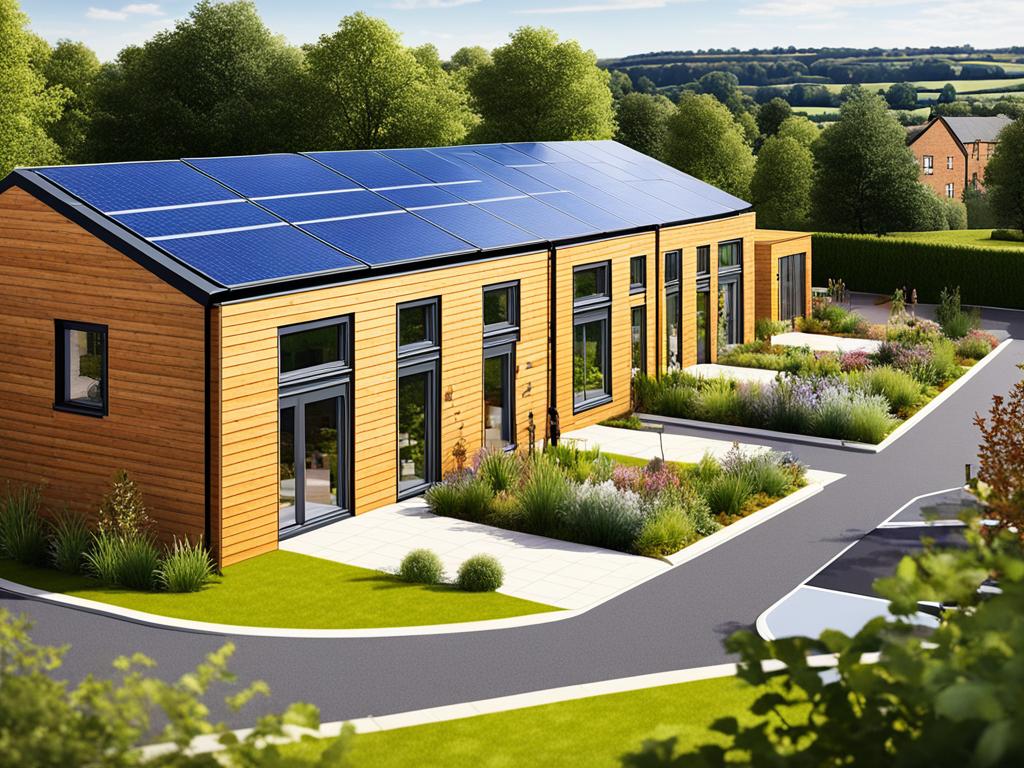
Challenges Faced by Ilke Homes
Ilke Homes, based in Knaresborough, has encountered various challenges in relation to funding and the planning system. The company has been confronted with rising costs, making it arduous to secure the necessary funding for expansion. Additionally, issues with the planning system have further complicated matters. These challenges have prompted Ilke Homes to explore alternative fundraising options and ultimately consider a sale in order to safeguard its workforce and fulfill its commitment to constructing 4,200 homes.
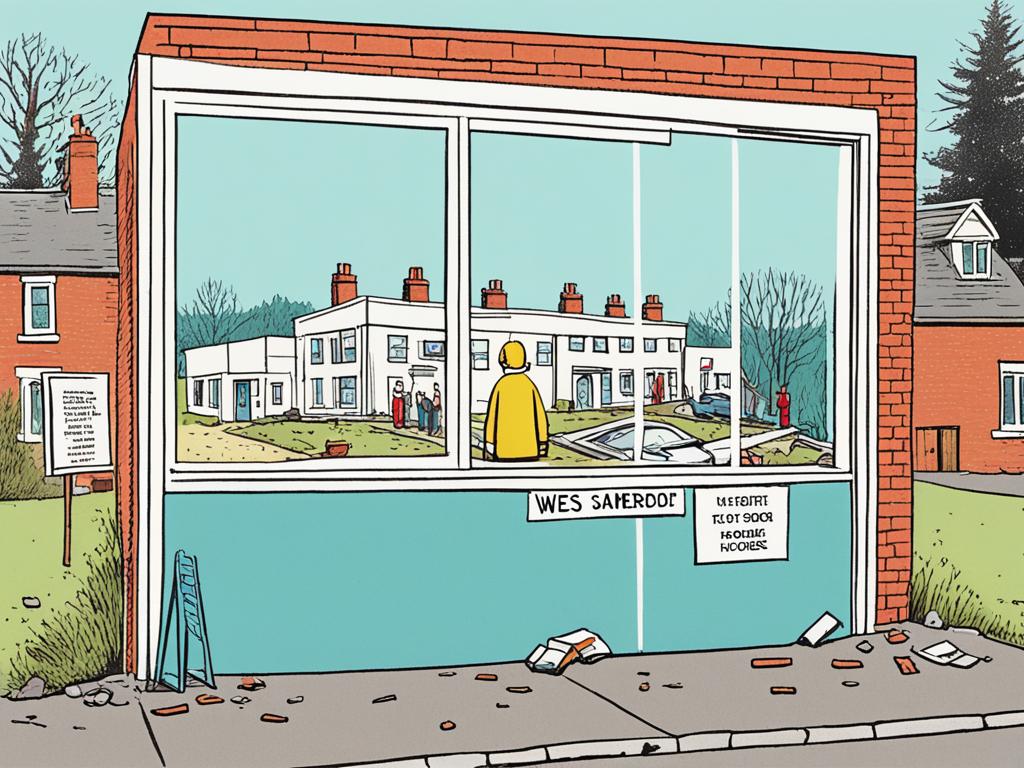
One of the main obstacles faced by Ilke Homes has been the volatility of funding availability, which has relied heavily on venture capital investment. This dependency on external capital has contributed to the current predicament. Moreover, the planning system issues in Knaresborough have added further complexities to Ilke Homes’ operations, impeding their ability to secure necessary approvals and progress with their developments.
Market Factors Impacting Ilke Homes
Ilke Homes, like many others in the housing industry, is currently facing challenges due to various market factors. These factors include the uncertainty in the housing market conditions in Knaresborough and the lack of government support. The drop in housing targets, the impact of COVID-19, geopolitical conflicts, and rising inflation have all contributed to the difficult conditions that the industry is currently experiencing.
In particular, the modular methods of construction (MMC) industry, to which Ilke Homes belongs, has faced additional challenges. Planning delays and a perception that modular developments do not meet high architectural standards have created further obstacles for Ilke Homes and other players in the MMC industry.
The Impact of Housing Market Conditions
The housing market conditions in Knaresborough have been uncertain, making it difficult for Ilke Homes to operate smoothly. Fluctuations in demand and supply, coupled with the changing economic landscape, have created challenges for the company in terms of securing new projects and acquiring funding.
With the drop in housing targets, there has been a decline in the number of new projects available for Ilke Homes and other housing developers. This has resulted in a more competitive market, with limited opportunities for growth and expansion.
Additionally, the impact of COVID-19 has disrupted the housing market and the construction industry as a whole. Lockdowns, restrictions, and supply chain disruptions have affected the progress of ongoing projects and made it more challenging to meet deadlines and deliver homes.
The Importance of Government Support
The lack of government support has also posed a significant challenge for Ilke Homes. The housing industry relies on government initiatives and policies to provide a supportive environment for growth and innovation. However, the lack of targeted support and incentives has hindered the development of sustainable, eco-friendly housing solutions.
Greater government support in terms of funding, streamlined planning processes, and policies that promote sustainable housing initiatives can help alleviate the challenges faced by Ilke Homes and other players in the industry. Such support would not only benefit the companies but also contribute to the overall goal of providing affordable and energy-efficient housing for the community.
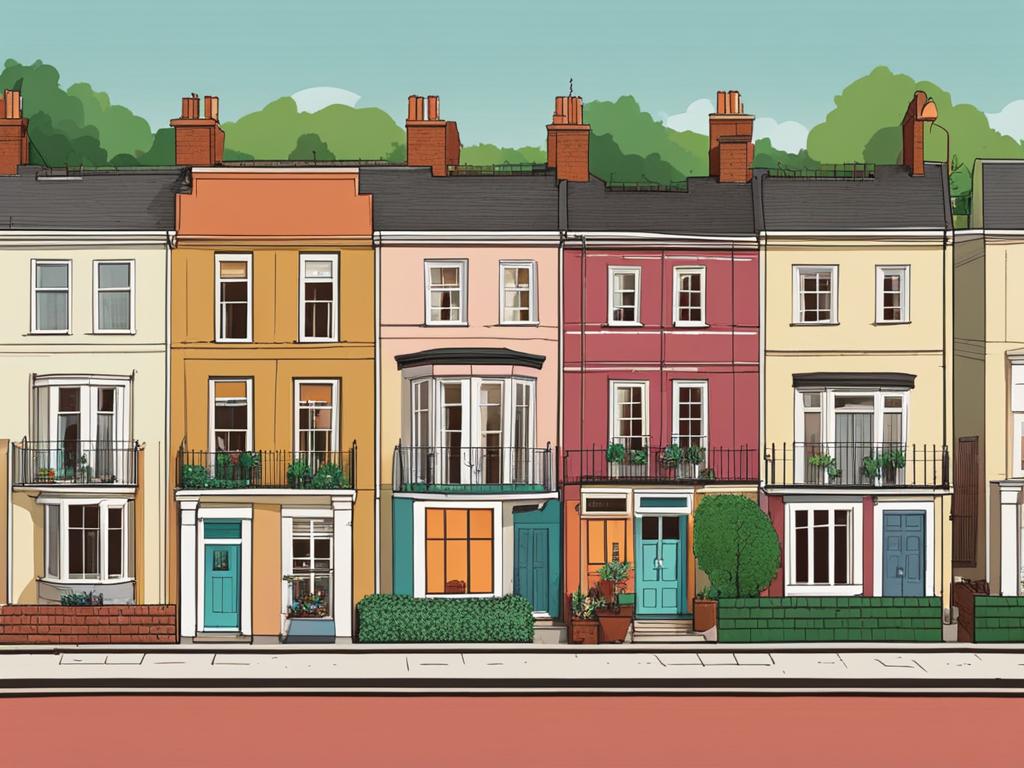
Lessons Learned and Future of MMC Industry
The challenges faced by Ilke Homes highlight the need for a sustainable funding model and greater support from the government. The reliance on venture capital investment and the financial burden of running a large factory have proven to be challenges for the company. Additionally, the MMC industry as a whole needs to address planning delays and the perception of modular developments.
Despite these challenges, there is optimism that Ilke Homes or a similar company may emerge from administration and continue to innovate in the MMC sector. The industry as a whole will need to adapt to market conditions and advocate for support and recognition.
Addressing Funding and Financial Burdens
Ilke Homes’ experience emphasizes the importance of establishing a sustainable funding model for companies in the modular industry. Relying solely on venture capital investment can be risky and may limit long-term stability. Exploring alternative financing options, such as public-private partnerships or government grants, can provide a more stable foundation for growth.
Furthermore, the financial burdens associated with running a large factory can strain a company’s resources. Implementing efficient manufacturing processes and exploring cost-saving measures can help mitigate these challenges. Collaboration with other industry players and sharing resources may also be beneficial in reducing individual financial burdens.
Addressing Planning Delays and Perception
One of the key challenges faced by the MMC industry is the delay in planning approvals for modular developments. Streamlining the planning process and increasing collaboration between developers, local authorities, and planning bodies can help accelerate the approval process and encourage the growth of the modular market.
Additionally, addressing the perception of modular developments is crucial for the industry’s future success. Educating stakeholders, including potential homebuyers, architects, and regulators, about the benefits and quality of modern modular construction can help overcome biases and misconceptions.
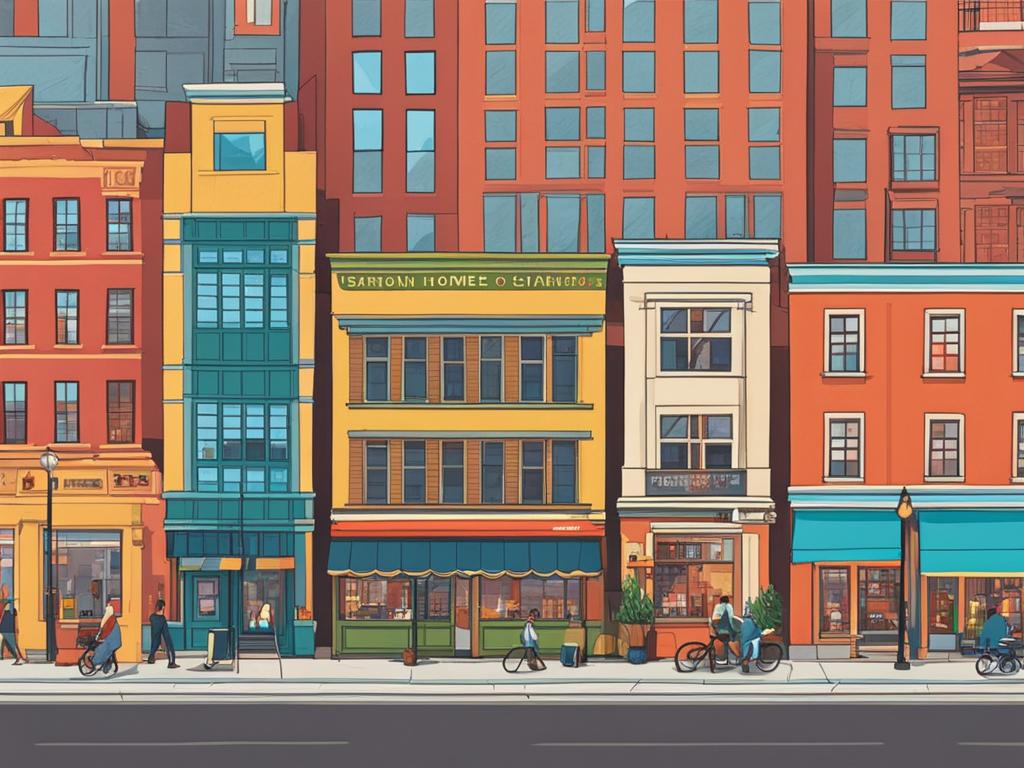
Adapting to Market Conditions and Advocating for Support
The future of the MMC industry depends on its ability to adapt to changing market conditions and advocate for support and recognition. Monitoring trends and customer preferences can help companies stay ahead of the curve and develop innovative solutions that meet market demands.
Furthermore, industry associations and organizations should collaborate to advocate for government support and recognition of the benefits of modular construction. Engaging with policymakers, showcasing successful case studies, and highlighting the industry’s environmental and economic advantages can help foster a favorable regulatory environment and drive further growth.
In conclusion, while the challenges faced by Ilke Homes have shed light on the obstacles within the modular industry, there is still optimism for its future. Overcoming funding challenges, addressing planning delays, and changing perceptions will require collective efforts from industry players, policymakers, and stakeholders. With the potential for emerging companies and continued innovation, the MMC industry in Knaresborough can thrive and provide sustainable, energy-efficient housing solutions for the future.
Impact on Ilke Homes’ Employees and Projects
The administration of Ilke Homes has had a significant impact on its employees and ongoing projects. Almost all of the company’s 1,150 employees were told they were facing redundancy. This is a challenging time for the employees and their families as they face uncertainty about their future.
Ongoing projects, including collaborations with developers and housing associations, may be affected by the administration. The talented workforce at Ilke Homes plays a crucial role in delivering these projects, and their potential departure could disrupt the progress and timelines of these initiatives.
The administration process may also affect the financial stability and continuity of Ilke Homes’ projects. Suppliers and partners involved in these projects may also face difficulties if the administration leads to delays or cancellations.
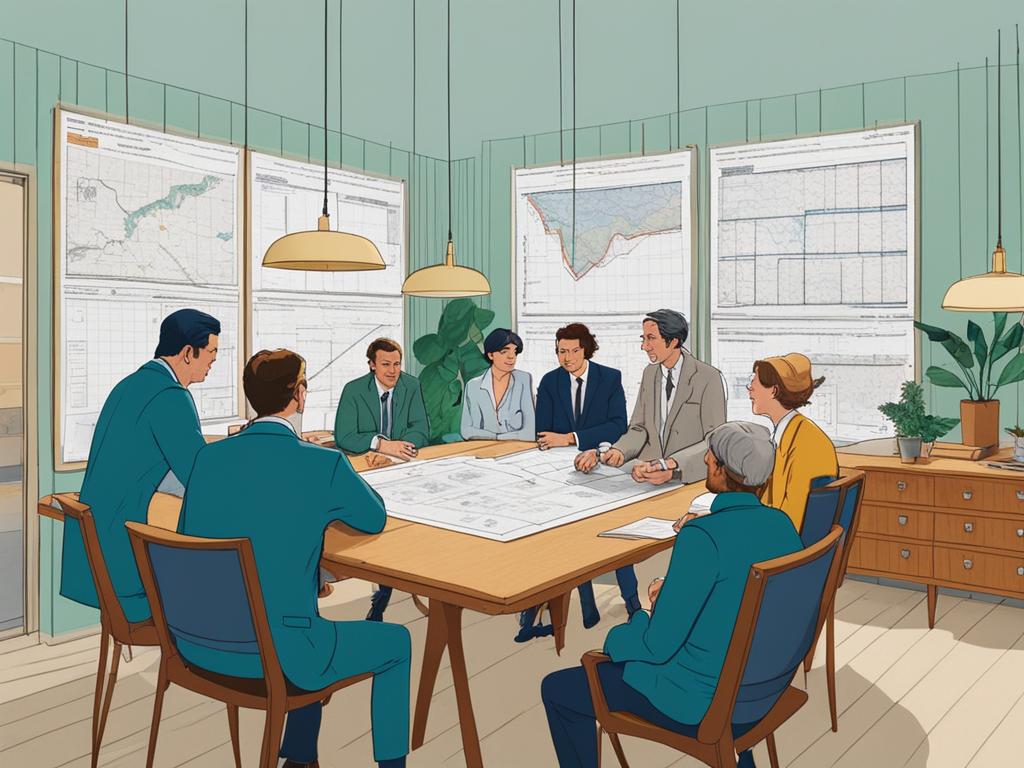
However, despite these challenges, there is hope that Ilke Homes’ projects will be continued by other organizations in the industry. The innovative and sustainable approach of Ilke Homes has garnered interest and recognition, making it possible for other companies to step in and take on these projects.
The dedication and expertise of the employees at Ilke Homes have contributed to the success of the company’s projects and its reputation in the industry. Organizations looking to acquire Ilke Homes or collaborate with its employees will have the opportunity to benefit from their skills and experience.
While the impact on Ilke Homes’ employees and projects is undeniable, the resilience and determination within the industry may lead to positive outcomes for all parties involved.
Potential for the Future of Ilke Homes
Despite the current challenges faced by Ilke Homes, there is immense potential for the company to be acquired and for its innovative modular homes to continue being produced. With its valuable intellectual property and impressive track record, there is a strong possibility of interested buyers recognising the value in acquiring Ilke Homes.
The modular market is still experiencing growth, and as Ilke Homes navigates its Administration process, it leaves behind an opportunity for other Modular Methods of Construction (MMC) players to emerge and fill the gap in the market. These emerging companies can play a crucial role in maintaining the momentum of the MMC industry and continuing to deliver sustainable, energy-efficient homes to meet the demand in Knaresborough and beyond.
The future of Ilke Homes depends on the outcome of the Administration process. A successful acquisition will require the support and commitment of investors who believe in the company’s vision and its potential to make a positive impact on the housing industry. With industry expertise, financial backing, and strategic leadership, Ilke Homes can regain stability and continue its journey as a leading player in the modular homes market.
Conclusion
Ilke Homes’ situation highlights the challenges faced by the modular methods of construction (MMC) industry and the need for sustainable funding models and government support. The company has encountered obstacles such as planning delays and lingering perceptions about modular developments. These factors, along with volatile market conditions, have contributed to the current difficulties faced by Ilke Homes in Knaresborough. However, there is optimism that the company, or other innovative organizations in the industry, will continue to push the boundaries of MMC and adapt to overcome these challenges.
The future of Ilke Homes depends on the outcome of the administration process and the willingness of investors to support the company’s vision of providing sustainable, energy-efficient homes. With its track record of producing innovative modular homes, Ilke Homes possesses valuable intellectual property that may attract potential buyers interested in the future of MMC industry development in Knaresborough.
Despite the current setbacks, the modular market in Knaresborough and the broader MMC industry are still growing, demonstrating a promising future. It is crucial for both industry players and the government to work together to address funding issues, streamline the planning process, and improve perceptions of modular homes. By doing so, the industry can thrive and continue to provide innovative, sustainable housing solutions for the future.
FAQ
Are the homes produced by Ilke Homes energy-efficient?
Yes, Ilke Homes produces high-quality, energy-efficient modular homes that are designed to be sustainable and eco-friendly. These homes are zero-carbon in operation and come with innovative features such as the UK’s first homes guaranteeing no energy bills.
What kind of features do Ilke Homes’ modular homes have?
Ilke Homes’ modular homes are designed to be spacious with ample natural light, modern kitchens, and durable fixtures. They are built to a high standard and offer comfortable living spaces for homeowners.
Why has Ilke Homes faced challenges with fundraising?
Ilke Homes has faced difficulties with fundraising due to rising costs and issues with the planning system. These challenges have made it challenging for the company to secure funding and expand its operations.
What factors have contributed to the challenges faced by Ilke Homes?
The challenges faced by Ilke Homes can be attributed to market factors such as uncertainty in the housing market and the lack of government support. Factors such as the drop in housing targets, the impact of COVID-19, geopolitical conflicts, and rising inflation have created challenges for the housing industry as a whole.
How has Ilke Homes’ situation impacted its employees and ongoing projects?
Almost all of Ilke Homes’ 1,150 employees were told they were facing redundancy, which has caused uncertainty for them and their families. Ongoing projects, including collaborations with developers and housing associations, may be affected by the administration. However, there is hope that these projects will be continued by other organizations in the industry.
Is there potential for Ilke Homes to continue producing modular homes in the future?
Despite the current challenges faced by Ilke Homes, there is potential for the company to be bought out of administration and for its innovative modular homes to continue being produced. The future of Ilke Homes will depend on the outcome of the administration process and the willingness of investors to support the company’s vision.
What are the lessons learned from Ilke Homes’ challenges?
The challenges faced by Ilke Homes highlight the need for a sustainable funding model and greater support from the government. The modular methods of construction industry as a whole needs to address planning delays and the perception of modular developments. The industry will need to adapt to market conditions and advocate for support and recognition.
